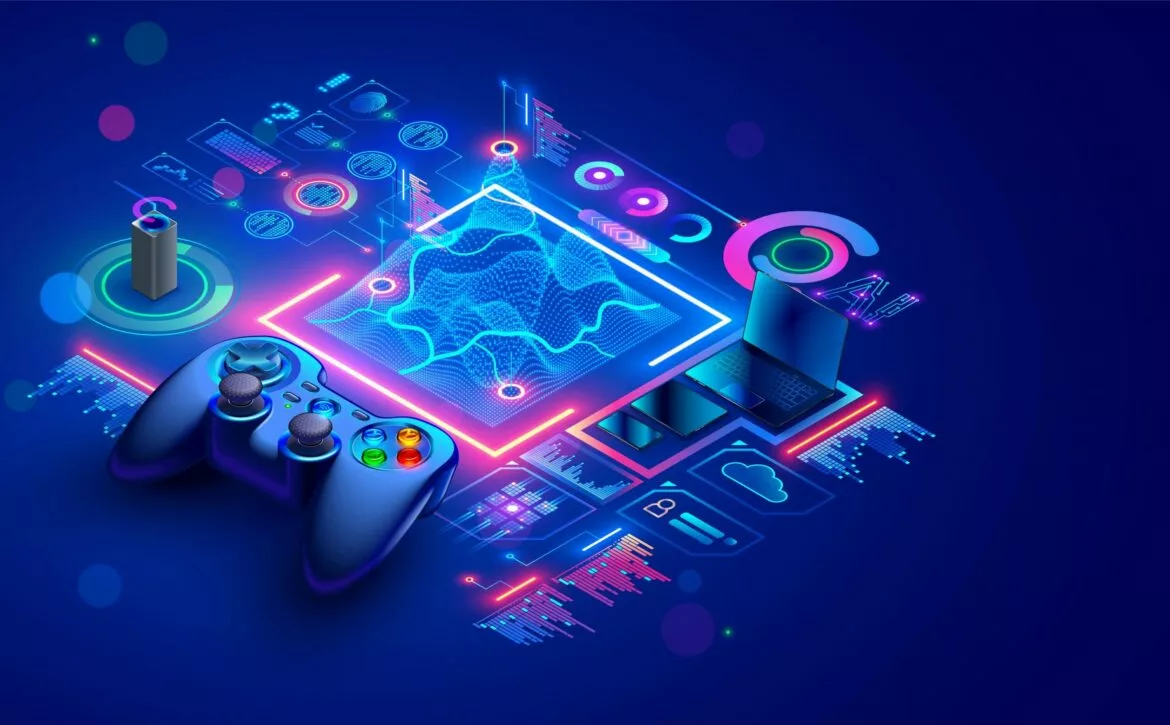Artificial intelligence, more specifically large language models, have created quite a stir within the international gaming industry. A host of corporate giants from this sector are openly expressing their admiration for this revolutionary technology during recent financial announcements.
A growing trend among these companies is an eagerness to integrate AI into their production processes, acknowledging the potential it holds for streamlining operations and enhancing the gaming experience.
Gaming Industry Titans Weigh in on AI
Andrew Wilson, the CEO of EA, firmly believes that the video gaming industry will be one of the primary beneficiaries of the wide-ranging applications of artificial intelligence. In a recent earnings call, he suggested that AI could allow his company to increase efficiency and extend their capabilities.
He believes it will empower the firm’s talented teams to enhance their creativity, meeting the ever-growing demands of the gaming community for more immersive and engaging content. He further proposed that AI could facilitate gamers in creating their own content within the gaming world, unveiling new opportunities for the company.
However, Wilson also addressed some apprehensions surrounding AI, such as the potential displacement of game developers, issues related to data ownership, and the misuse of AI by malicious entities.
To mitigate these risks, he proposed collaboration with peers from the gaming industry, entertainment, technology sectors, as well as governments and regulators. The aim is to create legislation that keeps pace with AI advancements, ensuring that consumers aren’t vulnerable to harmful actions of ‘bad actors’ within the industry.
A New Era of Game Development with AI
Ubisoft’s CEO, Yves Guillemot, expressed even greater confidence in the power of large language models in game development during his company’s earnings call. He emphasized the company’s readiness to leverage the vast amount of data collected from its various brands to create an abundance of content. He highlighted Ubisoft’s ongoing efforts over recent years, gearing up for anticipated growth stemming from AI integration.
Ubisoft’s unique positioning for AI adoption, thanks to its expansive size and diverse portfolio, was evident in its earnings release. It stated that creators and developers across all levels are already experimenting with this transformative technology.
Concurrently, teams are capitalizing on years of research and development in AI and Machine Learning, particularly through ‘La Forge.’ They aim to find optimal use cases and wield this technological power for creativity enhancement, workflow improvements, and better player experiences.
AI’s Impact on Game Development: A Closer Look
Reports from Kotaku indicate that Bobby Kotick, CEO of Activision, is wholeheartedly endorsing AI, considering it intrinsically linked with games. He cited various examples where modern AI, including ChatGPT, originated with the intent to master a game. Kotick predicts a profound positive impact of AI on game development and sees it enabling unprecedented functionalities in the years to come.
Conversely, Take-Two CEO, Strauss Zelnick, views AI with more cautious optimism. He expressed that while recent advancements in AI are captivating, they aren’t surprising for his company. Zelnick emphasized that AI is essentially a tool, albeit a better and more effective one, that would improve and streamline their work.
The Future of AI-Powered Games
Despite this optimism, questions linger about whether AI-powered games will follow the same trajectory as the integration of NFTs and blockchain. The latter experienced considerable pushback, leading to several failed experiments, causing the industry to pivot away. Whether AI-powered games will succeed or face similar challenges remains an open question.
Notably, early AI games have had a rocky start. Square Enix’s AI tech preview, for example, immediately became its worst-rated Steam release. Regardless, the potential of AI remains vast, and its transformative effect on the gaming industry is bound to be watched closely in the coming years.
